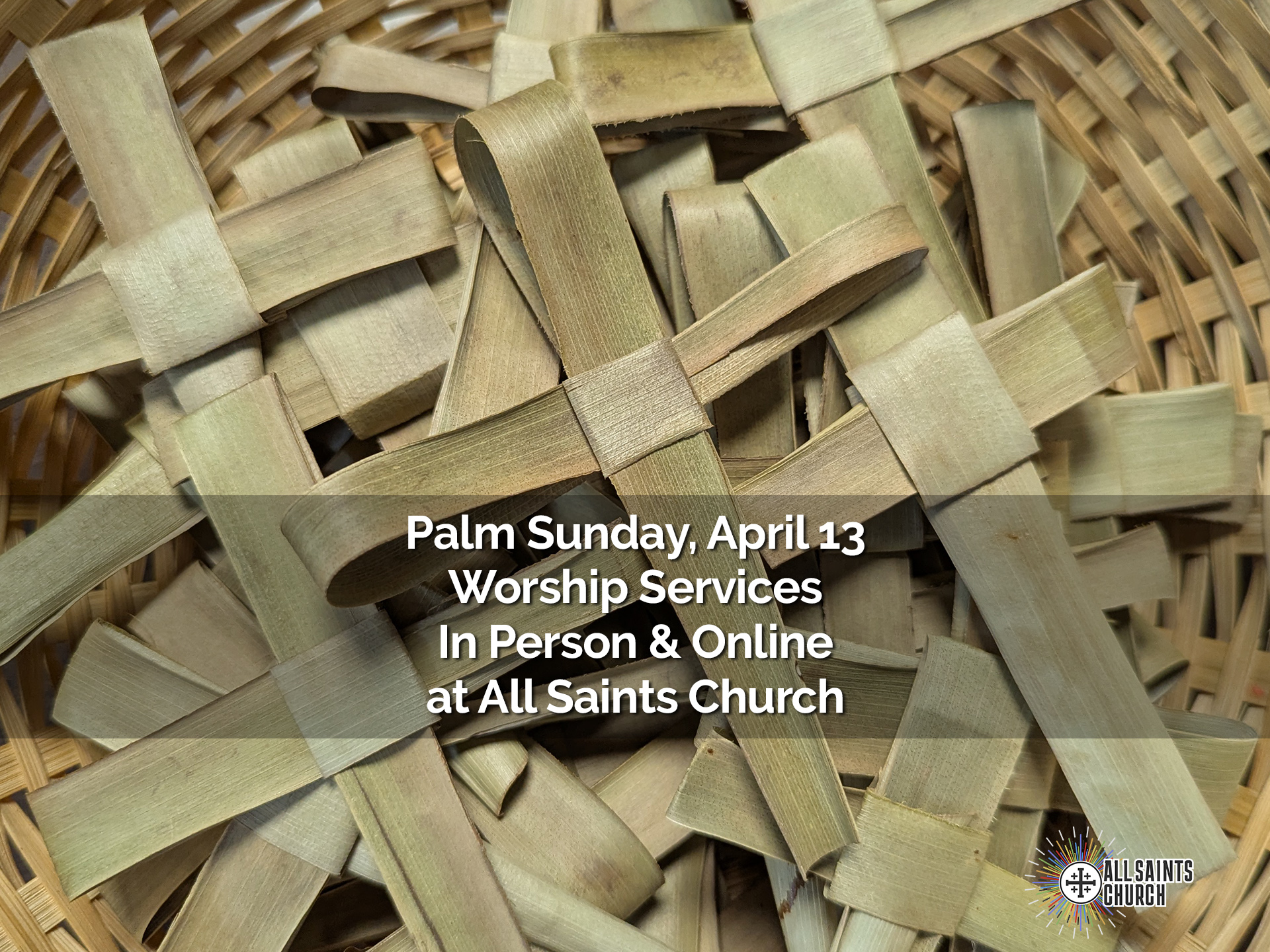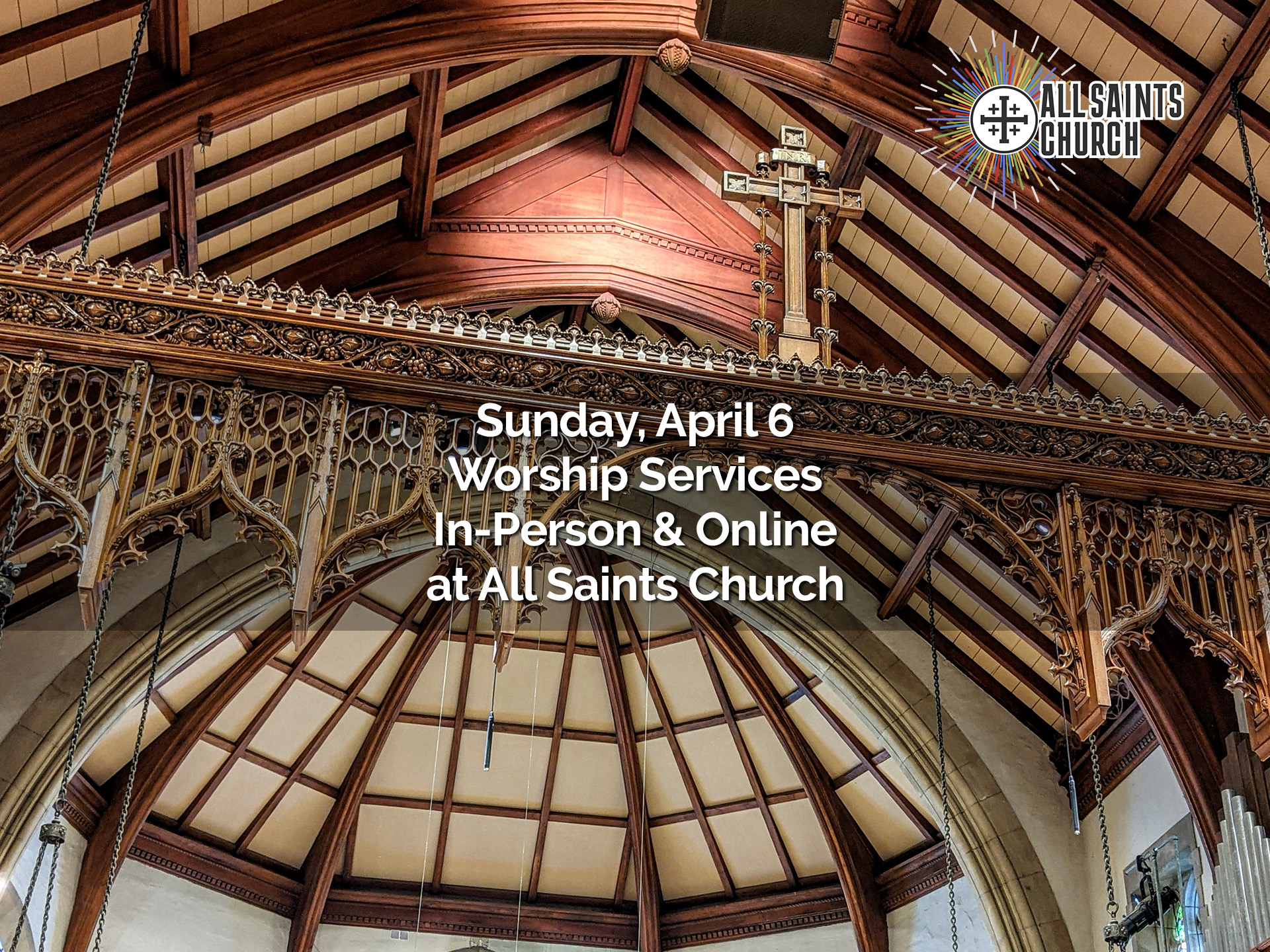The Gospel isn’t meant to be gulped down on Sunday morning, but gnawed on through the week so it really becomes a part of us. You’ve got to work at it, like a dog with a good bone! Here’s the Gospel for this coming Sunday — the Seventh Sunday of Easter — with food for thought on Jesus as both journey and destination. Gnaw away!
Seventh Sunday of Easter – John 17:6-19
Looking up to heaven, Jesus prayed, “I have made your name known to those whom you gave me from the world. They were yours, and you gave them to me, and they have kept your word. Now they know that everything you have given me is from you; for the words that you gave to me I have given to them, and they have received them and know in truth that I came from you; and they have believed that you sent me. I am asking on their behalf; I am not asking on behalf of the world, but on behalf of those whom you gave me, because they are yours. All mine are yours, and yours are mine; and I have been glorified in them. And now I am no longer in the world, but they are in the world, and I am coming to you. Holy God, protect them in your name that you have given me, so that they may be one, as we are one. While I was with them, I protected them in your name that you have given me. I guarded them, and not one of them was lost except the one destined to be lost, so that the scripture might be fulfilled. But now I am coming to you, and I speak these things in the world so that they may have my joy made complete in themselves. I have given them your word, and the world has hated them because they do not belong to the world, just as I do not belong to the world. I am not asking you to take them out of the world, but I ask you to protect them from the evil one. They do not belong to the world, just as I do not belong to the world. Sanctify them in the truth; your word is truth. As you have sent me into the world, so I have sent them into the world. And for their sakes I sanctify myself, so that they also may be sanctified in truth.”
The Backstory – What’s Going On Here?
We are still in Jesus’ “Farewell Discourse” in John, but we have skipped over some things and find ourselves at the conclusion … the long prayer of Jesus. The prayer has three parts. First, Jesus prays for himself (17:1-5). In this part (17:6-19), Jesus prays for his current disciples. Finally, Jesus prays for the church to come … for the unity of future disciples (17:20-24).
The prayer is often called “Jesus’ High Priestly Prayer” because in it Jesus acts as intercessor on behalf of the disciples to God (in the same way the High Priest acts as the intercessor on behalf of the people at the Temple). In doing so, he is beginning an activity that will be continued after his death by the Holy Spirit, whom he calls “the advocate.” But even though this prayer sees Jesus asking God to protect his disciples, it is much more than that. It is a profound statement of who and what the disciples … and we number among them … are called to be.
A few things to chew on:
*”They are in the world … they do not belong to the world.” In the world but not of the world is a familiar phrase … and like much in John’s Gospel, it is not so much a new concept to his listeners as it is an old concept they are ideally to bring to perfection. As far back as Abraham, God set apart the nation of Israel to be a different people — dedicated to God and yet still among the other nations of the world. It has always been hard to balance those two things, and certainly the people of Israel failed at it when they petitioned to God that they might have a king “so we might be like other nations.” As followers of Jesus, we have largely moved from a being in the world but not of it that resulted in intense persecution to (especially after Constantine’s recognition of Christianity in 313 and Charlemange’s crowning by the Pope in 800) more and more being both in the world AND of it … a state that requires very little protection of the type Jesus was asking for his disciples. All of which raises the question: If our faith is not risky enough that we think Jesus would ask God to protect us … are we truly following Christ?
*”I protected them in your name that you have given me.” Much like the “in the world but not of it,” phrases like this continually emphasize Jesus’ disciples being the new and truer people of Israel — chosen specifically by God. At least some of this can be attributed to John’s community being a separatist community that was in conflict with mainstream Judaism and eager to proclaim itself the true heirs of David (a lot of human nature going on there). But regardless of the conflicts which birth this rhetoric, there is something powerful going on here. As we heard in last Sunday’s Gospel, we are chosen by Christ, not the other way around. And whatever other
questions that raises (“are others chosen?” “is being chosen to another path just as good or?” … spoiler alert … YES.), the truth this passage proclaims is that our encounter with Jesus is no mere chance. It is by design that we are being drawn into this life of extreme difference in the world … and we are promised that God will never leave us in the midst of it.
Try This:
“Sanctify them in the truth.”
Sanctification is a setting apart for a special purpose … a consecrating. The history of the priesthood in Judaism is that priests were set aside — sanctified — to God specifically so they could not be distracted by anything else that would draw them from God’s worth. This included not being given land to till (Deuteronomy 18:1-5).
Jesus asks God to sanctify his disciples — that’s us — but asks them not to be set apart but to be “in the world.” That is our call — to be set aside for the work of God and yet not set aside the other work we do. That means that the everydayness of our lives … the jobs we have, the relationships we sustain, even the dishes we do … are fodder for growing deeper in relationship with God.
This week, set aside a few minutes at the beginning of each day and think about the “in the world’ tasks you have before you. How can you approach each of them … or even one of them … in a way that is about being sanctified. How can you approach each of them … or even one of them … and do it in a way that proclaims, even if only to you: “I am following one who has chosen me to love the world as he has loved me.”
You know who…
In the Harry Potter series, the Dark Lord Voldemort is so powerful that even his name dared not be mentioned (except by Harry, of course!). Instead people cower and whisper “He who must not be named” … or even “You know who.”
This isn’t just some cute literary fiction. The people of Israel felt the same thing about their creator — both out of fear and deep reverence. The name of God was not to be uttered or even spelled out. When Moses asks the voice that speaks to him out of the burning bush whom he should say sent him to the people of Israel, the voice says, “Say this to the people of Israel: ‘I AM (YHWH) has sent me to you.'” (Exodus 3:13-14).
The face of God was so brilliant that no one could gaze upon it. Moses famously did not see God’s face but only his rear end! (Exodus 33:23)
But all that changes with Jesus. Through Jesus, God came to a people who could not even say God’s name. And John’s Gospel tells us the Word was made flesh to do what? To make God known:
“For the law was given through Moses; grace and truth came through Jesus Christ. No one has ever seen God; the only Son, who is in the bosom of the Father, he has made God known.”
I once had a wonderful conversation where a deep seeker said, “I just don’t understand about Jesus … is Jesus supposed to be God or is he supposed to be someone to follow to get to God?”
Frustratingly, I’m sure, I said I thought the answer to his question was: “Yes.”
Jesus is both the journey and the destination. As we’ve heard in the past weeks, Jesus is the Way … the Way of self-giving love and service that shapes us as his Body into the same glory of God that he was. But Jesus is also God … God in a form that we can gaze upon and have a conversation with and say his name.
And if God dwells in Jesus, it opens up amazing possibilities. Possibilities we embrace every time we greet one another on Sunday with: “God dwells in you.”
In this final prayer, Jesus prays “I have made your name known to those whom you gave me from the world.” We give our lives to Christ because it is through Christ that God becomes not something we need to shield our face from, but someone we can look full in the face … and feel God’s loving gaze on us as well.
We follow Jesus because Jesus makes God known to us — and not just intellectually but wholly and fully, to the point where we participate in the divine every bit as much as Jesus.
We follow Jesus because God does not want to be they who must not be named … but a God who must NOW be named. Now and forevermore.
Check out the rest of Sunday’s readings:
The Lectionary Page has all of the readings for this Sunday and every Sunday – just click here.
Collect for Sunday
Pray this throughout the week as you gnaw on this Gospel: O God, the Sovereign of glory, you have exalted Jesus Christ with great triumph to your kindom in heaven: Do not leave us comfortless, but send us your Holy Spirit to strengthen us, and exalt us to that place where our Savior Christ has gone before; who lives and reigns with you and the Holy Spirit, one God, in glory everlasting. Amen.
Want to read more?
“The Text This Week” is an excellent online resource for anyone who wants to dive more deeply into the scriptures for the week.



